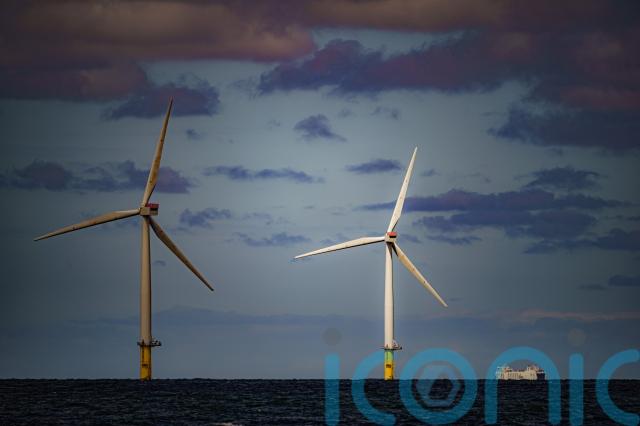
A public awareness campaign to reduce the gap between rhetoric and reality in tackling climate change is needed by the Scottish Government, a think tank has said.
Reform Scotland has made a raft of policy recommendations aimed at helping ministers reduce Scotland’s energy demands.
The Powering Ahead: Decarbonising Scotland’s Energy paper argues that while Scotland excels in its use of renewables for electricity, the Government does not go far enough to reverse the trends of oil and gas with usage increasing for heating and transport.
The report, written by Stuart Paton, chair at H2Green, and Reform Scotland’s research director Alison Payne, argues the lines are blurred on the boundaries between energy and electricity, creating a false impression that Scotland is powered solely by renewables.
It creates a sense of complacency and urgency, the report said.
The Government has been urged to adopt an education campaign to help the public understand what they can individually do to help the country reach its net-zero targets.
Ministers are also encouraged to escalate plans to ban gas heating in new buildings and the sale of new gas cookers.
A pay-as-you-drive road pricing plan has been proposed by the think tank, as it recommends the abolition of the road tax and vehicle excise duty.
Mr Paton, who is a former chief executive of Dana Petroleum, said: “Scotland is, and can remain, a global leader in the transition from fossil fuels to renewables.
“We are, with our immense natural resources, doing a very good job of reducing our use of fossil fuels in the generation of electricity, down from around half less than 10 years ago to only 10% today, with the remainder coming from low-carbon sources.
“However, we are in danger of tricking ourselves into believing the job is done. It is not.
“Electricity is not the only form of energy, and indeed Scotland uses more than double the amount of gas as it does electricity.

“The public need to have a clear understanding of what regulations are coming and when, so that they have the time and ability to make the changes necessary to their lives.
“Without this clarity there is a danger that the chaos around the regulations for interlinked smoke detectors could be repeated.
“The Scottish Government has indicated that it will ban gas boilers for new buildings from 2024, but why are we waiting until then? We know now that we need buildings not to be reliant on gas so there is no justification for allowing new buildings to install such systems.”
Ms Payne said: “The Scottish Government has rightly been ambitious in its drive to net-zero. However, our report identified 45 additional targets creating a confusing policy landscape which lacked coherence.
“Targets themselves do not guarantee delivery and without transparent and accountable tracking of these goals, there is a danger they become worthless.
“There is a long way to go, but we can reach the end of the journey more quickly by taking bolder steps now.”
A Scottish Government spokesperson said: “To help accelerate progress towards net zero, we will be publishing a draft updated Climate Change Plan next year, setting out policies to make further progress to our 2045 net zero target.
“Our homes and buildings account for approximately a fifth of all our emissions, and we know that we need to take bold, ambitious steps to ensure we meet our climate obligations while ensuring this transformation is just and fair for every community and household.
“This is why we are working at pace to deliver our Heat in Buildings Strategy and slash our reliance on fossil fuels.
“Recent measures include new energy standards that will cut emissions from all new-build homes, with further improvements to come, and we are currently consulting on plans that would mean direct emissions heating systems, such as those run on fossil fuel, would no longer be installed in any homes and non-domestic buildings warranted from April 2024.
“More widely, action like our £1.8 billion investment to cut energy bills and improve energy efficiency in our buildings, and free bus travel for under-22s, will help tackle climate change while meeting the needs of the people of Scotland.”
Subscribe or register today to discover more from DonegalLive.ie
Buy the e-paper of the Donegal Democrat, Donegal People's Press, Donegal Post and Inish Times here for instant access to Donegal's premier news titles.
Keep up with the latest news from Donegal with our daily newsletter featuring the most important stories of the day delivered to your inbox every evening at 5pm.